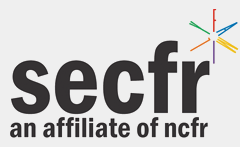From virtual to reality: The positive and negative outcomes of video game play in adolescents
Proposal Focus
Research
Presentation Type
Presentation
Abstract
Video games are an almost universal adolescent leisure activity. Though some in the scholarly field are concerned about the effects of violent video game content on adolescent social outcomes, others believe that the benefits of video game play have been overlooked. A literature review was conducted to examine the evidence for positive and negative outcomes of video game play on adolescents. There were 14 articles identified and subsequently reviewed. Findings demonstrated a unique link between video game play and antisocial (e.g., aggression), prosocial (e.g., generosity), and pragmatic (e.g., problem-solving skills) outcomes. However, the results also suggest that much of this research is atheoretical and does adequately consider the roles of relational context. Discussion of the potential roles of relationships, theoretical applications, strengths and limitations of the research, and future directions are provided.
Keywords
video games, adolescent outcomes, relationships, theoretical connections
Location
Cornerstone Ballroom
Start Date
12-4-2019 3:00 PM
End Date
12-4-2019 4:00 PM
From virtual to reality: The positive and negative outcomes of video game play in adolescents
Cornerstone Ballroom
Video games are an almost universal adolescent leisure activity. Though some in the scholarly field are concerned about the effects of violent video game content on adolescent social outcomes, others believe that the benefits of video game play have been overlooked. A literature review was conducted to examine the evidence for positive and negative outcomes of video game play on adolescents. There were 14 articles identified and subsequently reviewed. Findings demonstrated a unique link between video game play and antisocial (e.g., aggression), prosocial (e.g., generosity), and pragmatic (e.g., problem-solving skills) outcomes. However, the results also suggest that much of this research is atheoretical and does adequately consider the roles of relational context. Discussion of the potential roles of relationships, theoretical applications, strengths and limitations of the research, and future directions are provided.
![Southeastern Council on Family Relations Conference [2018-2020]](/assets/md5images/a0d3661d5139dc9b769a57be6f085156.png)

